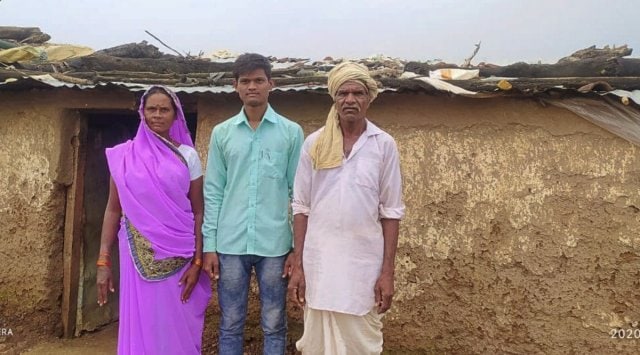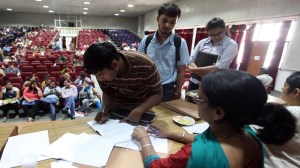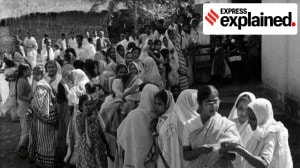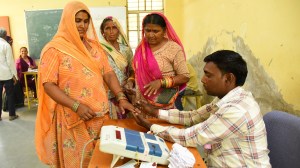- India
- International
Melghat: Son of former bonded labourer clears NEET, wants to come back and serve his community
When results of the national exam were declared earlier this week, Kasdekar, whose father Shaligram used to work as a bonded labourer for a money lender, surpassed his own expectations by scoring 427 out of 600.
 Kasbekar, the first member of his family in the remote tribal region of Melghat in Vidarbha region of Maharashtra to clear HSC exams, is now headed to a medical college. (Express photo by Ashish Kale)
Kasbekar, the first member of his family in the remote tribal region of Melghat in Vidarbha region of Maharashtra to clear HSC exams, is now headed to a medical college. (Express photo by Ashish Kale)Two years ago, when Shantilal Shaligram Kasdekar was asked to prepare for the National Eligibility cum Entrance Test (NEET), the 19-year-old had no idea what it entailed.
When results of the national exam were declared earlier this week, Kasdekar, whose father Shaligram used to work as a bonded labourer for a money lender, surpassed his own expectations by scoring 427 out of 720.
Kasdekar, the first member of his family in the remote tribal region of Melghat in Vidarbha region of Maharashtra to clear HSC exams, is now headed to a medical college.
Hailing from a family of farm labourers, Kasdekar credits his success to the special training imparted by the Integrated Tribal Development Project (ITDP) when he cleared his Class X exams.
“My parents work as labourers in agricultural land owned by others, and my two elder brothers had dropped out of school to join the informal sector. My parents… constantly encouraged me to continue my education while assuring me that I would face no problems,” he says.

A student from an Ashramshala — residential schools for tribal students run by the state government — in Tembli village of Amravati district’s Dharni taluka, Kasdekar attracted the attention of authorities when he scored 85 per cent in his Class X exams.
“Two years ago, the then project officer, Dr Vijay Rathod, wanted to prepare some students for the NEET so that they can become doctors and serve the local community. I liked the idea, but I really didn’t know much about either the exam or what kind of preparation I had to do,” he says.
Dr Mittali Sethi, project officer of ITDP Dharni, says the programme involves rigorous studies and personal mentoring. While volunteers from the Pune-based Lift for Upliftment — a social organisation that helps students from underprivileged families prepare for medical courses — were roped in to help, the very first roadblock the young students faced was their unfamiliarity with English.
“Our students had problems with English, but we decided to tackle it by preparing them systematically to qualify for the examinations. This included focused and rigorous studies in all subjects,” says Dr Sethi.
From across various Ashramshalas in Amravati, 34 students were selected for the programme.
Shivkumar Sawalkar (18), a student from this special batch who scored 358 out of 600 in NEET, says he and other students studied for over 12 hours every day. “…Most of the time, we stayed in the hostel and concentrated on our studies,” he says.
Sawalkar’s family grows crops, including soyabean and cotton, on their one-acre holding in Tembli, and his elder brother, Rajkumar, is pursuing his diploma studies in agriculture.
The students were moved to Ghodegaon in December so that they could pursue their studies more rigorously, but were ferried back home in April due to the Covid-induced lockdown. “Instead of allowing them to go back home, the students were kept in a special hostel and their studies continued via zoom sessions,” says Dr Sethi.
Ten of the 34 students scored enough in NEET to qualify for a seat in a government medical college. “…This is the first time that such a large number of students from our ITDP-run schools qualified for the exams,” she says.
Both Swalkar and Kasdekar say that once they finish their medical education, they want to come back to Melghat to practice. Poverty and malnutrition plague the region, with Melghat often in the news because of its high percentage of malnourished children.
“We have seen the skeletal healthcare system in our area… as we are from the local community, we think we can understand them better,” they said.
Click here to join Express Pune WhatsApp channel and get a curated list of our stories
Apr 24: Latest News
- 01
- 02
- 03
- 04
- 05






































